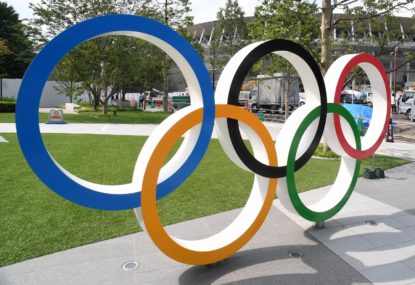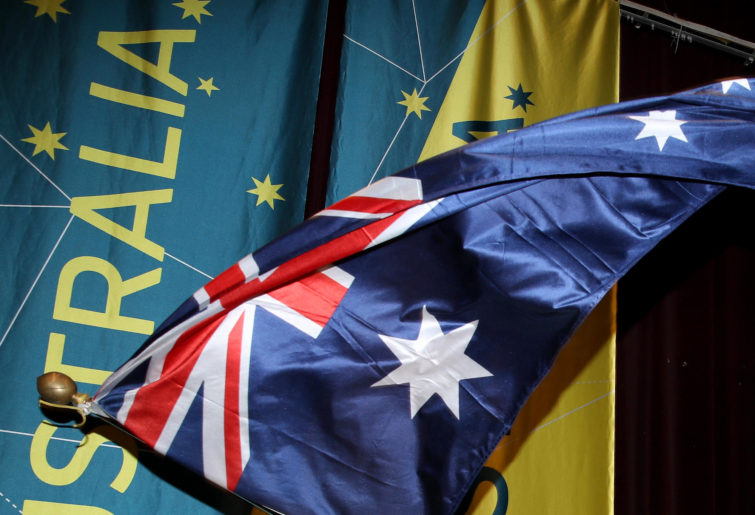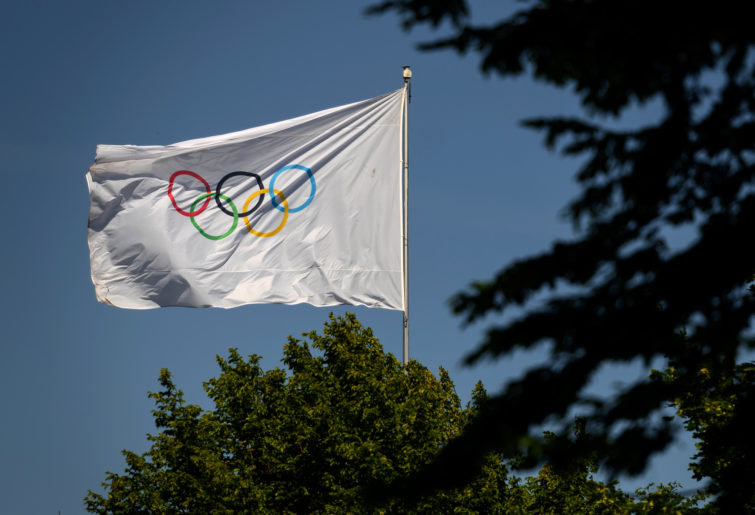'An iconic roster': LeBron, Steph, KD headline all-star cast for Team USA's shot at Olympic glory
LeBron James is going back to the Olympics for the first time in 12 years. Steph Curry is headed to the games for the…
Opinion

Today marks six months until the opening ceremony of the Olympics in Tokyo. Hopefully.
With COVID continuing to have a stranglehold on the world, it’s difficult to predict what’s going to happen in six days, let alone six months.
It leaves the International Olympic Committee (IOC) and the Japanese government with one heck of a dilemma on their hands, and the clock is ticking.
Within the next few weeks, one of three decisions must be made: to go ahead with the Games, postpone the Games, or cancel them. A decision on fans can be made nearer the time.
Here are those options in more detail.
1. Go ahead with the Games
Despite a report on Friday by The Times’ Asia editor Richard Lloyd Parry indicating that the Japanese government were preparing to cancel the Games, the government as well as the IOC later reiterated their commitment to holding the Games later this year.
From a financial standpoint, this is the best option for Japan as a cancellation of the Games has been estimated to cost the economy over four and a half trillion Japanese Yen ($56.3 billion).
However, this option is very much an idealistic one as things stand.

(Cameron Spencer/Getty Images)
Talk of vaccinating the athletes and associated personnel and the qualifying tournaments that still need to be held only serves to reinforce that idealistic viewpoint.
The trouble with this option is nobody knows what the world will be like in July.
There is the sub-option of holding the Games without fans, but there is still the matter of 11,000 athletes and thousands more support staff, broadcasters and officials. Plus the majority of Japanese people are against having the Games take place as currently planned, so to have it behind closed doors would likely fuel their antipathy.
2. Postpone the Games
This is the realist’s option, albeit one that will still cause headaches.
The question with this option is when to reschedule the Games (again).
In 2022, the Winter Olympics will be held in Beijing in February, the Commonwealth Games will be held in Birmingham in July and August, and the FIFA World Cup will be held in Qatar in December.
There’s little wriggle room for an Olympics and Paralympics among all that.
And the IOC would rather not have a Summer Olympics and a Winter Olympics held in the same year ever again, although the argument will be that a decision to do so will be made out of necessity rather than by choice.
One idea raised by four-time Olympic gold medallist, Sir Matthew Pinsent, is instead of the Paris Games being held in 2024 and the LA Games in 2028, the Tokyo Games are held in 2024, with Paris and LA moving to 2028 and 2032.
Now that isn’t a bad idea, particularly seeing as the bidding for the 2024 Games collapsed when all candidates bar Paris and Los Angeles pulled out due to financial problems or antipathy from residents towards hosting the Games.
Hosting an Olympics is an expensive business, and host nations regularly go over budget, plus there’s the legacy of the Games to think of too.

(Photo by Fabrice Coffrini/AFP via Getty Images)
Therefore, shifting the Olympics in this way eliminates the need to invite bids until 2029, ready for 2036, giving the Olympic movement certainty while the world continues to recover from the COVID pandemic.
However, such postponements would need to get approval from the organising committees in Paris and Los Angeles, who may not be pleased at being asked to wait their turn.
Alternatively, the Tokyo Olympics could be shoe-horned in at the end of August 2022, with The Telegraph’s Oliver Brown advocating for a 2022 Tokyo Games and a 2025 Paris Games, another reasonable proposal.
At the end of the day, any postponement would be more preferable to an outright cancellation.
3. Cancel the Games
The president of the IOC, Thomas Bach, has said that the Tokyo Olympics would be cancelled if it couldn’t take place this year.
That would be a crying shame.
You can’t play the waiting game forever though.
And you only have to look at the logistical effort of getting a few hundred tennis players to Melbourne during a global pandemic for the Australian Open to imagine what it would be like doing the same, but with thousands of athletes.
It is going to be challenging.
For now, it should be seen as business as usual until either the IOC or the Japanese government says otherwise.
One athlete, British swimmer Alice Dearing, has muted the words ‘Olympics’, ‘Summer Games’, ‘Tokyo’, and ‘Tokyo 2020’ on her Twitter so she can concentrate on carrying on regardless in her training programme.
I love using Twitter but the noise is ruining it for me.
I’ve put in too much hard work over 1.5 decades to have it undermined by speculation & rumours. Being in the right mind frame for training is key and I’m not having anything which I can control affect that. pic.twitter.com/zAw4VlPoAC
— Alice Dearing (@alicedearingx) January 22, 2021
Whatever the decision is, it needs to be made as quickly as possible for the sake of everyone involved.